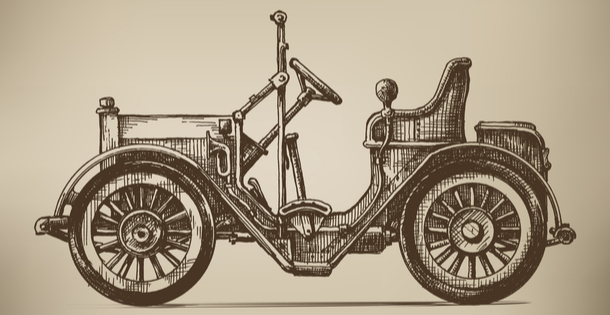Managing editor and logophile Andy Hollandbeck reveals the sometimes surprising roots of common English words and phrases. Remember: Etymology tells us where a word comes from, but not what it means today.
If the language purists of old had their way, automobiles wouldn’t exist.
The prefix auto- comes from the Greek autos “self,” but the -mobile part comes from Latin mobilis “moveable.” In linguistics, words like this that originate in two or more languages are called hybrid words. More colloquially, they are sometimes called Frankenwords (after the patchwork assemblage of Frankenstein’s monster), and you probably use them every day without knowing it: bureaucracy, gullible, pacifist, sociology, speedometer, and television are all Greek and Latinate hybrids. Starvation and courthouse both mix Latin and Germanic roots.
Hybridizations are really nothing special these days. But, writes fellow language columnist Jan Freeman, “to the language watchdogs of the 18th and 19th centuries, trying to hold back the tide of innovation, it was a big deal — or, at least, one convenient weapon for smacking upstart coinages.” These mavens labeled such hybrid words “barbarisms” — except, of course, the ones they found useful, like drinkable and goddess.
Such snoots would have had us driving around in either Greek autokinetikons or Latinate ipsomobiles.
Thankfully, these days hybridization is widely recognized as just another way that a language grows naturally and democratically.
Become a Saturday Evening Post member and enjoy unlimited access. Subscribe now




Comments
Thanks, Bob. I’m glad you liked it.
Unfortunately, I can only report on the words; I have very little control over the course of the English language. As a people, we love our scandals, and there certainly are a lot of gate-aholics out there.
Andy, you’ve done it again with a wonderful feature on words and their origins. I’d really love it though, if any more scandals didn’t have the ancient and archaic “gate” following it, and the equally irritating “aholic” preceded by an addiction of some type or another.
Thanks for mentioning ‘goddess’! It helps make an ugly world a little more beautiful. As Larry Tate used to say, “I love it!”